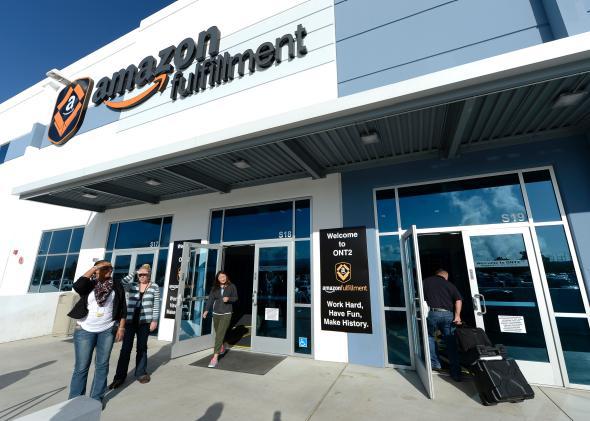On Thursday morning, the people of Florida lost a tried-and-true method of tax evasion: placing orders on Amazon.
Florida is joining 20 other states that collect sales tax on Amazon purchases, meaning just about everything bought there through the everything store will now cost 6 percent more. The change comes because Amazon is planning two new warehouses in Florida, which will give it the so-called physical presence required for the state to mandate that it tack sales tax onto orders. (In theory, Florida’s shoppers were already expected to self-report out-of-state purchases that escaped the state’s sales tax and voluntarily pay up, which, let’s be honest, barely ever happened.)
Amazon has been avoiding sales tax for years. The 21 states it is now subject to sales tax in make up less than half of the 45 U.S. states that collect the tax on traditional brick-and-mortar stores. In some states like Arkansas, Louisiana, and Oklahoma, avoiding sales tax through Amazon can save consumers—and divert from governmental coffers—in the range of 9 percent of the price of purchases. If you’re a financially savvy consumer in one of those states, it’s foolish not to buy expensive items online. The addition of sales tax on Amazon in Florida is expected to generate around $80 million in revenue for the state.
This setup sounds nice for consumers, but it’s a tremendous disadvantage for physical establishments. There was a time in the early 2000s when e-commerce made up a mere 2 percent of all retail sales, and perhaps needed a boost from avoiding sales tax; in addition, the savings seemed somehow to make up for the inconvenience of waiting for your item to arrive in the mail. But today online purchases have soared to 18 percent of retail sales. And for Amazon, which reported $19.7 billion in revenue in the first quarter, the days of being a small retailer are long past.
Frankly, there also doesn’t seem to be a good reason for skipping sales tax on online purchases anymore. Shipping times today are good, and the end result for the customer is the same whether you buy a flat-screen TV at the closest Best Buy or through an online portal—why should the sales tax on those purchases be treated differently? The legal system has hinted it feels the same way. In December, the Supreme Court decided to let stand a New York Court of Appeals ruling that forces online retailers to collect sales tax on purchases in New York regardless of whether they have a physical presence in the state. “The world has changed dramatically in the last two decades,” Chief Judge Jonathan Lippman wrote in the decision, “and it may be that the physical presence test is outdated.”
Even Amazon has recognized the unfairness of this system and thrown its support behind federal legislation that would regulate taxes on online purchases, in large part because fighting and evading sales tax just isn’t worth the hassle anymore. For Amazon to provide the fastest, most convenient delivery service, it needs physical warehouses and distribution centers all over the country. Staying out of a state like Florida just to dodge sales tax would only slow it down.
The irony in all of this is that so far levying a tax on Amazon purchases hasn’t done much to help the big losers of the unequal tax rules: local businesses. An NBER working paper released in April found that households living in states where sales tax applied to Amazon reduced their spending on the site by 9.5 percent. But rather than sending that money into brick-and-mortar shops, most of it just flowed back into other tax-exempt online operations, like vendors on Amazon Marketplace. Take away one money-saving loophole from people, and you can bet they’ll find another.
